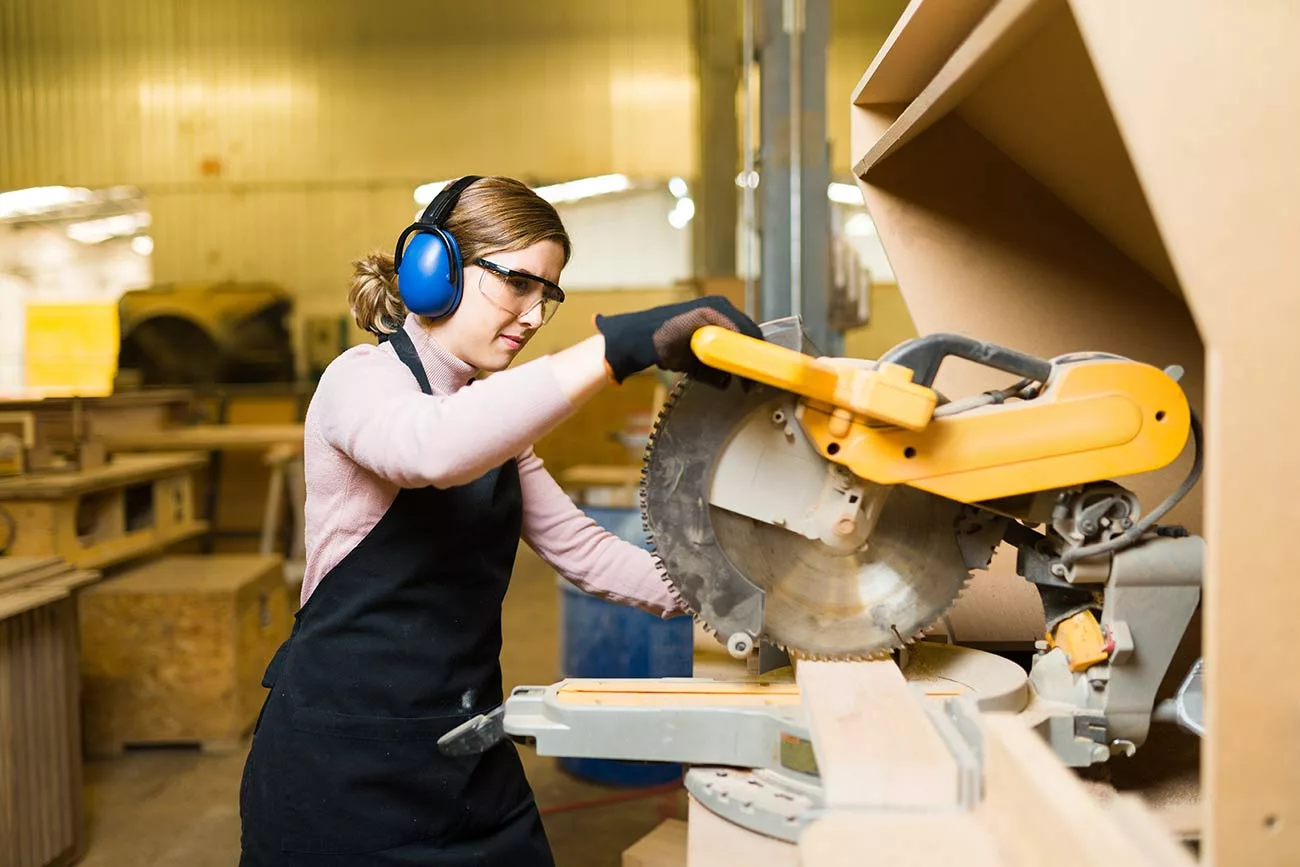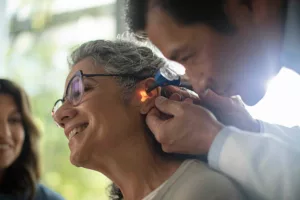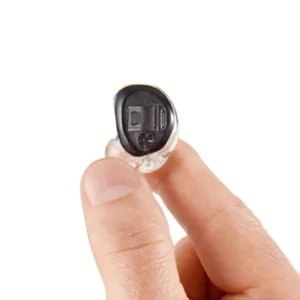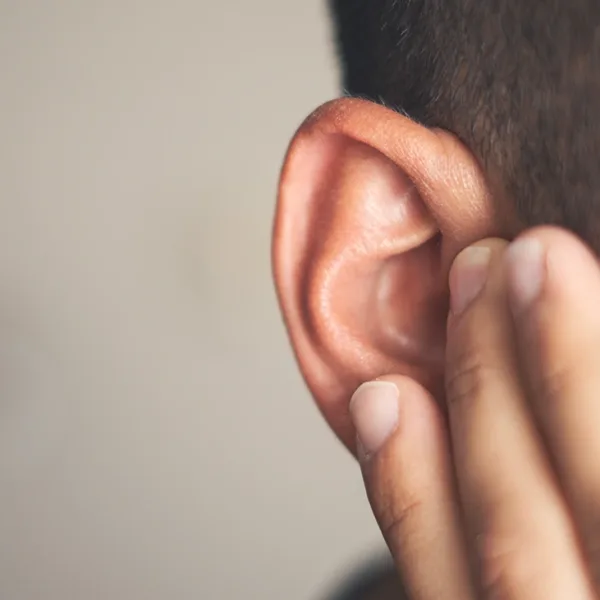
It’s a well-known fact that exposure to loud noises can permanently affect your hearing. While there are many ways to control the amount of noise we are exposed to in our daily lives, many people are faced with exposure to loud noises as a result of their job. In fact, the Center for Disease Control (CDC) estimates that over 22 million workers are exposed to potentially damaging levels of noise at work each year. Whether you work around large machinery, firearms, or even loud music—knowing how to prevent hearing loss at work is important to maintaining your health and wellbeing.
If your job exposes you to loud noise levels, you might be wondering, “How do I protect my hearing at work?” We understand your concern and want to help. In this article, you’ll learn eight methods for preventing hearing loss in the workplace.
What is Noise Induced Hearing Loss?
Noise Induced Hearing Loss (NIHL) is caused by unprotected exposure to loud noise. Without proper preventative measures, your risk of hearing loss increases the longer you are exposed to loud noises. And the louder a sound is, the less time it takes to damage your hearing permanently. NIHL can be caused by a single loud event, or by exposure to loud noises for prolonged periods of time.
If you have noticed any of these symptoms, you may be affected by NIHL:
- Difficulty understanding conversations in loud or crowded environments
- Missing words and saying “what?” often
- Trouble hearing on the phone
- Needing higher volume on tv, stereo, etc. than others
- Having to concentrate harder to hear others
- Mishearing parts of words
- Not hearing sounds that others near you report hearing
Occupations With Dangerous Noise Levels
When thinking about loud work environments, a few occupations likely come to mind immediately, like musicians or construction workers. When you consider that it’s a combination of volume and duration, however, some jobs with potentially damaging noise levels may surprise you.
Some workers who are at a high risk for NIHL include:
- Miners
- Construction, site prep, and demolition workers
- Manufacturing workers
- Airport ground crews
- Metal and iron workers
- Musicians, stage and sound crews
- Racecar drivers and pit crews
- Landscapers
- First responders
- Equipment operators (farms, warehouses, hydro-electric dams, etc.)
- Road, bridge and tunnel builders
- Shipyard and railway workers
- Traders on stock exchange floor
It’s important to note that in addition to loud noises, certain workplace environments can also amplify sounds and contribute to noise-induced hearing loss. This can be particularly prevalent in environments with brick or tiled walls and a high volume of constant noise, such as:
- Retail stores
- Restaurants
- Arcades
- Nightclubs
- Casinos
- Schools
- Daycares
The continuous drone of loud voices in these settings can take a toll on your ears, leading to sound fatigue and potentially causing harm to your hearing.
Prevent Hearing Loss at Work with Smart Habits
Many people work in loud environments. Whether the dangerous noise levels are coming from machinery, construction equipment, or alarms sounding, personal habits can reduce the effects of these noises on your hearing health.
Wear Ear Protection
Most work environments with high noise levels should provide ear protection. Businesses that routinely have dangerous noise levels are required by the Occupational Safety and Health Administration (OSHA) to provide their workers with ear protection. (More on that here.)
Make sure to use well-fitting headphones or earplugs whenever you find yourself working around loud noises.
Different types of sound exposure require different types of protection. While those one-size-fits-all disposable ear plugs may be easy to come by, they may provide insufficient protection, especially if they are not properly inserted in the ear. Using custom-made earplugs, which have been molded to each of your ears will provide the best protection from loud noise exposure in the workplace. Certain styles can address specific sound ranges, and some are even electronic, offering a hearing assist and blocking noise all with one effective and comfortable device.
Noise-cancelling headphones also vary widely in quality and effectiveness. It’s important to read all of the product information before purchasing ear-protecting headphones, to ensure they have the level of protection necessary for your particular type of exposure.
Limit Exposure to Noise
Giving your ears a rest from the constant onslaught of dangerous noise levels can go a long way toward lowering your risk of hearing loss while on the job. This is especially important when dealing with hours-long exposure, which is common in many fields of work. Stepping outside or moving to a quieter area can give your ears the opportunity to recoup.
In addition, if you have a variety of projects at home or at work that involve loud noises, break them up as much as you can, by building in quieter activities to limit the duration of your exposure.
Cancel Noise Rather than Compete with It
When working around loud noises, you might be tempted to drown it out by listening to your favorite music with earbuds or headphones. However, this can be even more problematic as the high volume necessary to overcome the external noise may end up causing additional damage to your hearing. To avoid this, it’s best to use noise-cancelling headphones or earplugs rather than trying to compete with the noise. This will effectively reduce the noise without sacrificing the health of your hearing.
Keep the Volume Down
When it comes to listening to music with headphones or earbuds, or using any kind of earpiece walkie-talkies or headset at work, volume levels can’t be stressed enough. If the people near you can hear your audio, while you’re using a personal listening device, it’s too loud. Before putting your headphones on or earbuds in, adjust the volume so that it’s too low, then slowly turn it up until you reach a comfortable and safe listening level.
If you’re finding it hard to hear your personal devices at a safe volume, instead of turning the volume up, it’s best to either listen later, or speak with your employer to find a safe and effective solution.
Get Annual Hearing Exams to Screen for NIHL and Monitor Overall Hearing Health

Having a baseline to determine your level of hearing loss is important. If you work around loud noises, get your hearing tested by a hearing health professional before or at the first onset of possible NIHL symptoms, such as ringing in your ears, or sounds seeming muffled or dull.
The earlier NIHL is diagnosed, the sooner you can take the steps necessary to prevent further irreversible hearing loss. In addition, your doctor will also be able to screen for other types of hearing loss to keep your hearing health on track.
Make Changes to Your Environment
In addition to the personal habits that you can put into place to protect your hearing, there are many ways you and your employer can maintain safe noise levels in the work environment. This two-pronged approach gives you the ultimate protection from hearing loss.
Report Malfunctioning Machines
Well-oiled, properly maintained equipment and machinery will tend to run more quietly. Reporting unusual noises will help ensure essential equipment remains in good working order, which will help it last longer, and reduce the risk of NIHL for you and your coworkers.
Use Noise Barriers and Sound Baffles
If it’s not practical to put distance between you and the source of the loud noise, you can block or deaden the sound with barriers and sound baffles. These measures don’t negate the need for wearing ear protection, but they will create added protection for prolonged exposure to potentially harmful noise levels.
Know OSHA Noise Standards
Employers have a responsibility to ensure that you have a safe work environment. OSHA outlines safety requirements with which employers must comply. It’s a good idea to understand the occupational noise requirements and how noise levels are measured, so that you know that your workplace is in compliance and safe. There may be additional noise safety measures to which you and your fellow employees are entitled. Many times, just politely letting your employer know you are aware of the codes and your rights will convince them to comply. However, if your employer does not make the necessary adjustments to maintain a healthy and safe workplace, you can file a complaint with the US Department of Labor.
Trust Your Hearing Health to Audibel and Embrace the Joy of Hearing
NIHL cannot be reversed, but it can be prevented and treated. The sooner you catch it, the sooner you can regain access to all the nuances in the music you love, the tender, whispered words of a loved one, and the critical conversations—or all the conversations—with your colleagues or friends.
At Audibel, we focus on one thing—Hearing Health. Our hearing healthcare providers will assess your current hearing level, provide a tailored solution for any hearing loss, and continue to monitor your hearing health with regular exams. We encourage you to take proactive steps to preserve your hearing by meeting with one of our hearing healthcare providers at any of our clinics conveniently located throughout the United States. Don’t wait until it’s too late—act now to protect your hearing for years to come.








Have a question or Comment?